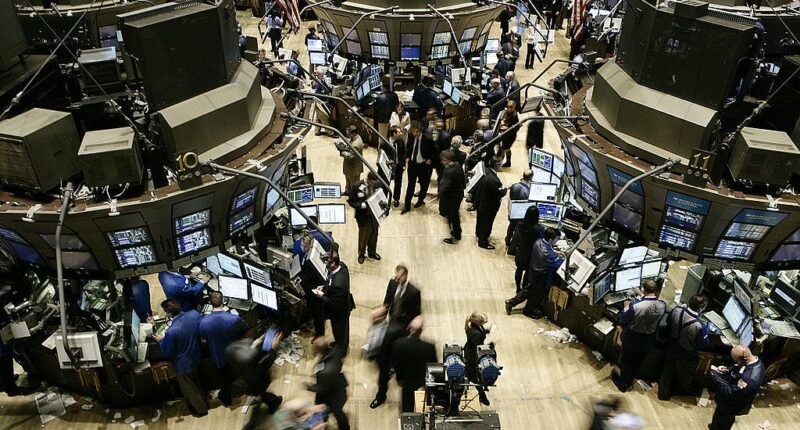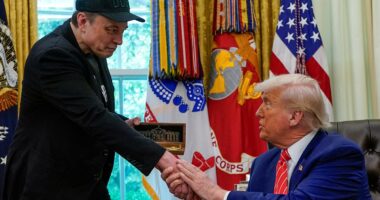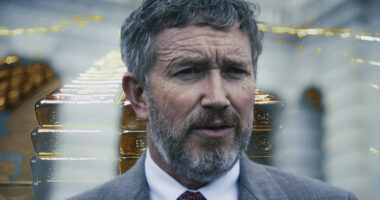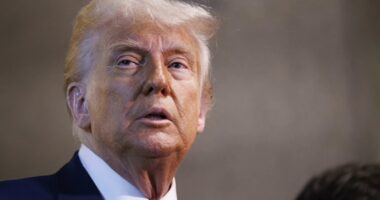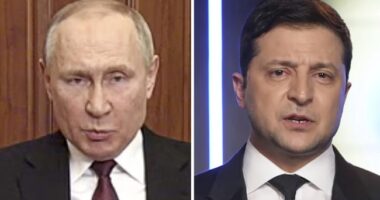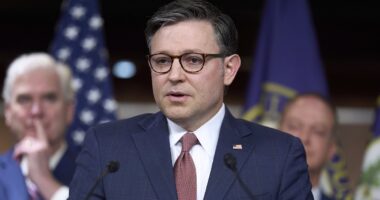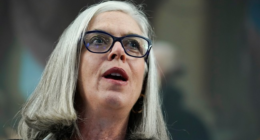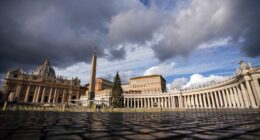The US’s biggest banks raked in record profits as stock markets tumbled this year — while everyday Americans saw trillions wiped from their 401(k)s.
JPMorgan, Morgan Stanley and Goldman Sachs were among the Wall Street giants to benefit from uncertainty around President Trump’s tariffs.
While the retirement accounts of Americans saw significant decreases, Goldman Sachs announced a substantial $4.19 billion in trading revenue for the first quarter, marking a 27 percent increase from the previous year.
Most 401(k)s are tied to major indexes like the S&P 500 and Nasdaq, meaning when the market plunges, so do Americans’ savings.
For the banks, however, turmoil equals cash. They profit with every trade, and volatility causes trading to skyrocket.
Rival companies such as JPMorgan and Morgan Stanley also disclosed remarkable financial results last week, attributing the success to a surge in trading activities driven by market uncertainty, causing investors to frantically adjust their investment portfolios.
The three banks’ bumper profits came before Trump’s April 2 tariff announcement, dubbed ‘Liberation Day,’ which caused even more sell-offs.
The financial market had been experiencing turbulence for several months, sparked by unpredictable policy decisions from the Trump administration, which resulted in heightened trading volumes in January, February, and particularly in March.

Goldman Sachs traders raked in $4.19 billion in the first quarter of the year
The next quarter could see even bigger profits, as the chaos intensified following Trump’s so-called ‘Liberation Day’ announcement.
Despite Goldman traders benefiting from the volatility, Goldman CEO David Solomon has called for greater clarity on tariffs to provide more certainty for investors.
‘While we are entering the second quarter with a markedly different operating environment than earlier this year, we remain confident in our ability to continue to support our clients,’ Solomon said.
JPMorgan, the biggest US bank, made $3.81 billion in the same period, smashing analysts expectations.
Yet the bank’s CEO Jamie Dimon has warned of the risks from tariffs and asked for clarity from the administration.
‘The economy is facing considerable turbulence (including geopolitics), with the potential positives of tax reform and deregulation and the potential negatives of tariffs and “trade wars,” ongoing sticky inflation, high fiscal deficits and still rather high asset prices and volatility,’ Dimon said last week.
Dimon — who has also warned the US is at risk of stagflation, which he says is worst than a recession — wants tariffs to be reduced through negotiation as soon as possible.
Markets dropped dramatically following Trump’s so-called reciprocal tariffs announcements on April 2.

Goldman CEO David Solomon has called for clarity on tariffs to give investors more certainty

JPMorgan CEO Jamie Dimon has also taken a cautionary tone, warning of long-term damage
The continued volatility has prompted recession worries and consumer confidence plummeted in a recent survey.
Consumers told the University of Michigan’s consumer survey that they anticipate inflation to have jumped by 6.7 percent by this time next year.
Consumers were also gloomy about the current economic conditions, dropping their confidence in them by 11.4 percent since March.
Fears of unemployment have also risen to their highest level since 2009, according to the survey.
Amid the turmoil Trump made a shocking U-turn last Wednesday, halting the majority of tariffs for 90 days.
Stocks soared and it later emerged that in the 18 minutes before the announcement thousands of popular ETFs lit up with unusual trading activity.
The frenzy of trading has prompted questions about who knew Trump intended to make the announcement ahead of time.
